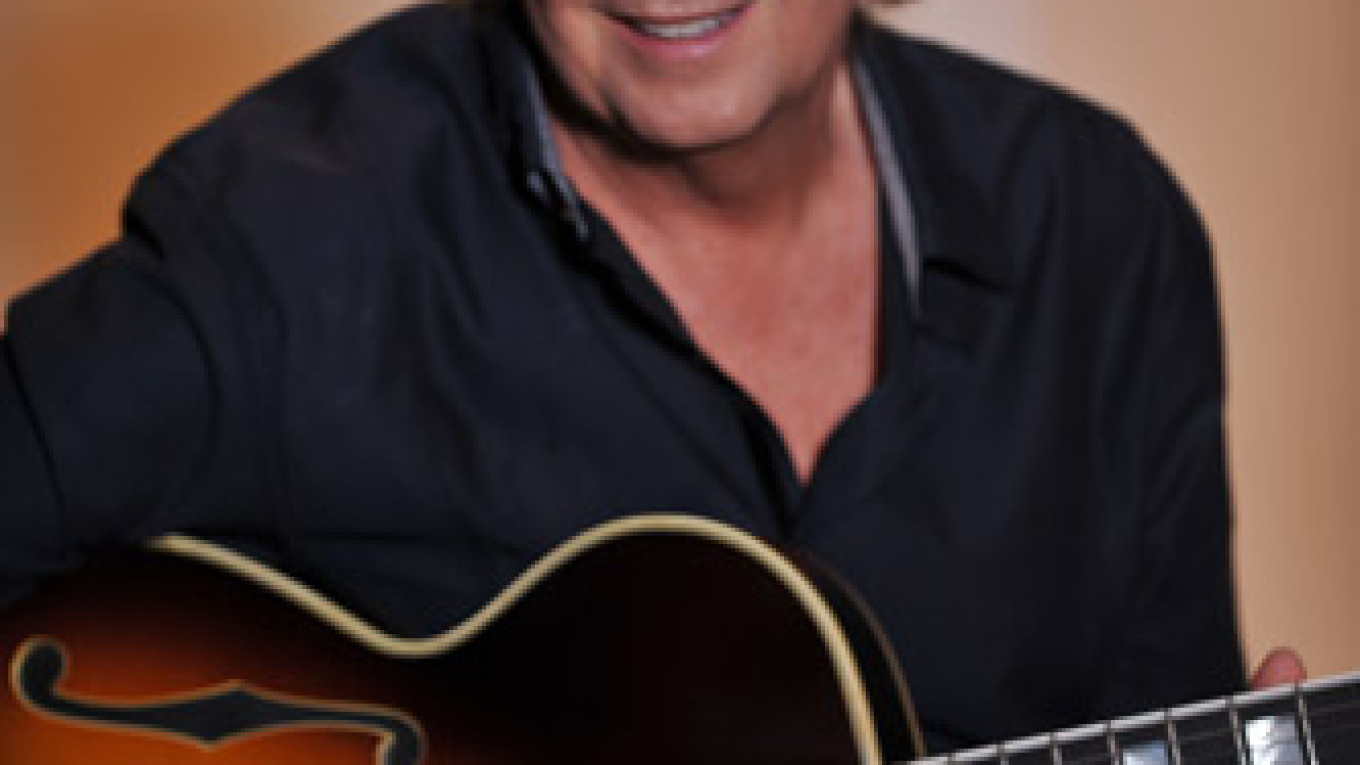Lee Ritenour, nicknamed "Captain Fingers" because of his dexterity on the guitar, plays with Grammy Award-winning pianist Dave Grusin, who composed much of the soundtrack for "The Graduate," at downtown Moscow's Igor Butman Club on Friday. Ritenour's first work as a session guitarist was with The Mamas & The Papas in 1968, and he has released dozens of solo albums.
Q: How would you describe what music you play?
A: Melody and rhythm is always at the forefront of what we do. We both love straight-ahead jazz, bebop jazz, Brazilian, funk, fusion, ballads. Whatever style we are playing at the moment is always infused with respect to the melodic shape of a particular song. .
Q: What other music genres have influenced you?
A: I love all kinds of music from classical to jazz to rock. I played on more than 3,000 albums in the early part of my career. I had the chance to work with Sonny Rollins, Dizzy Gillespie, Motown records, Quincy Jones, Pink Floyd, Steely Dan, big orchestra sessions with many movies, including Dave Grusin scores. When I was growing up I was influenced by every kind of good music. That versatility has been infused in me for my whole life and it is apparent on my own albums — more than 45 now.
Q: How important is the audience at a jazz concert?
A: Musicians always perform better when the audience is involved in the performance and vice versa. I don't particularly like to rehearse with the band and do sound checks. But I do, of course. But the stage and the interaction with the audience is always the element that make musicians perform better.
Q: Russian jazz musicians often work with pop singers. Is there that kind of cooperation in the U.S.?
A: No, not really. Believe it or not, with many record companies and many pop performers jazz is a dirty word in the U.S. Many pop musicians do not want to be associated with jazz because they think they will be pigeonholed and stereotyped and all of a sudden not sell many records! But of course, some jazz-oriented singers that have jazz roots and later become popular with the general public like Norah Jones or Diana Krall, they always have their jazz roots and try to collaborate with many musicians.
Q: Do you have any advice for a young musician?
A: The first step is to get as good as you can on your instrument! Study, study, study. Music education is the only insurance policy a musician has! Put the hours in, be obsessive and study music in every sense. From other musicians, from teachers, from school, from the Internet, from books, from YouTube. Amazing tools are available to help you become the best player you can be. Become the best instrumentalist, the best singer, and also learn about the music business. You also have to always be selling yourself and connecting yourself to other people that you want to emulate and meet. You will never become a professional musician just staying in your bedroom playing along with YouTube videos! One more bit of advice for young musicians. Don't ever copy one musician too much. It is very important to have your own personal voice and expression. Your own style. Everybody on the planet has their own individual style and stamp as a person. You have to learn how to bring that out in your music! Listen to many kinds of music and many kinds of musicians. Borrow a little bit here and a little bit there. It's like cooking in the kitchen, come up with your own spices and your own way of doing it. There are so many musicians on the planet. You need to be an individual with your own sound and style.
Lee Ritenour and Dave Grusin play Friday at 8:30 p.m. at the Igor Butman Club, 21 Verkhnyaya Radischevskaya Ulitsa. Metro Taganskaya. www.butmanclub.ru.
Contact the author at artsreporter@imedia.ru
A Message from The Moscow Times:
Dear readers,
We are facing unprecedented challenges. Russia's Prosecutor General's Office has designated The Moscow Times as an "undesirable" organization, criminalizing our work and putting our staff at risk of prosecution. This follows our earlier unjust labeling as a "foreign agent."
These actions are direct attempts to silence independent journalism in Russia. The authorities claim our work "discredits the decisions of the Russian leadership." We see things differently: we strive to provide accurate, unbiased reporting on Russia.
We, the journalists of The Moscow Times, refuse to be silenced. But to continue our work, we need your help.
Your support, no matter how small, makes a world of difference. If you can, please support us monthly starting from just $2. It's quick to set up, and every contribution makes a significant impact.
By supporting The Moscow Times, you're defending open, independent journalism in the face of repression. Thank you for standing with us.
Remind me later.






